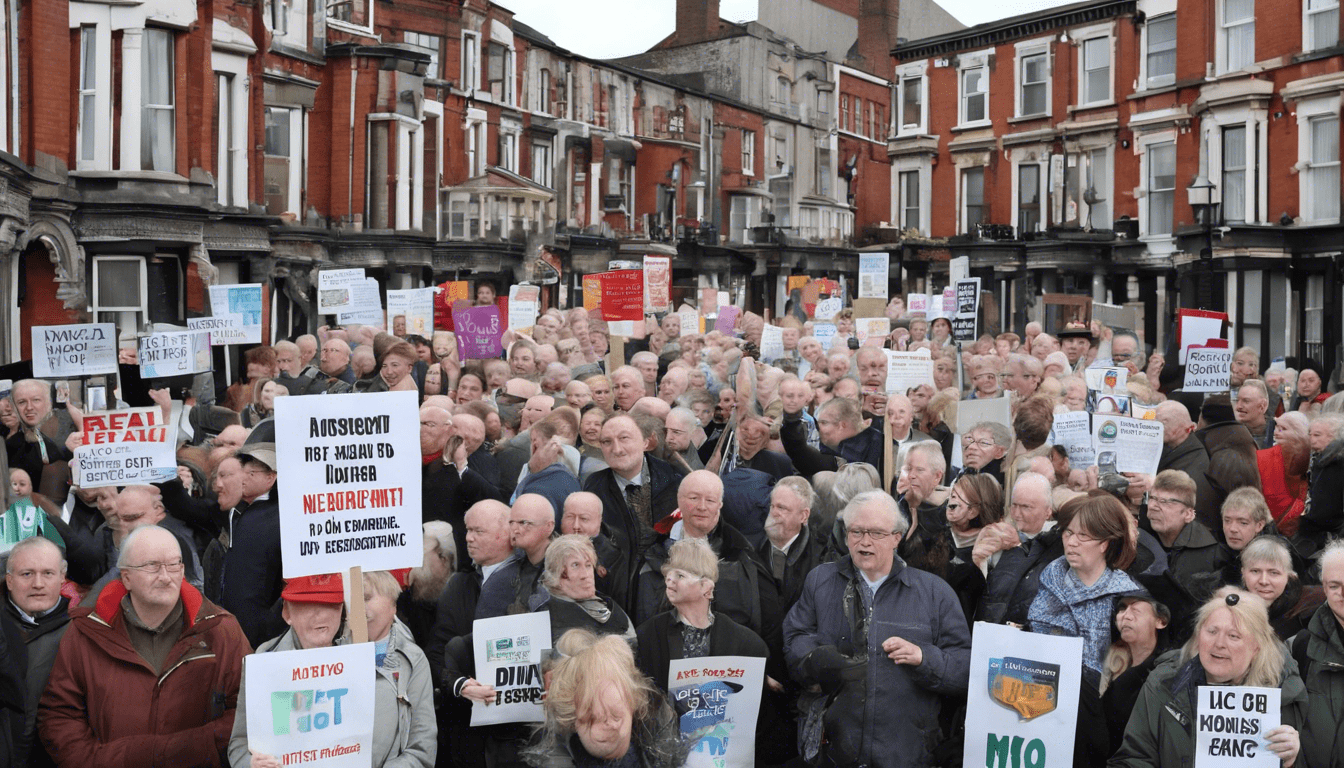In a significant move reflecting local concerns about overcrowding and community integrity, the Belfast City Council has denied planning permission for the conversion of two houses on Ponsonby Avenue into Houses of Multiple Occupation (HMOs). This decision, influenced greatly by Sinn Féin representatives, highlights a growing trend of community opposition to HMOs in North Belfast, where four such conversions have been rejected this year alone. Residents expressed concerns during the council meeting about the implications of increased density in their neighborhoods, particularly regarding traffic congestion, parking problems, and noise disturbances. These issues are part of a broader dialogue in Northern Ireland surrounding the management of HMOs, especially in areas heavily populated by students, where incidents of anti-social behaviour have been noted (Belfast City Council, 2024). The council’s existing policy limits HMOs to 20% within any designated area, yet neighborhoods like the Holylands have witnessed HMOs comprising over 90% of residences, raising serious questions about housing sustainability and community cohesion (The Irish News, 2024). This article explores the factors leading to the growing opposition to HMO conversions in Belfast and their impacts on local communities.
Key Takeaways
- Belfast City Council has denied several HMO conversion applications due to community concerns over overcrowding.
- Residents worry about the impact of HMOs on traffic, parking, waste management, and community character.
- Sinn Féin’s involvement highlights a rising political movement against HMO proliferation in North Belfast neighborhoods.
The Growing Opposition to HMO Conversions in Belfast
The increasing opposition to Houses of Multiple Occupation (HMOs) in Belfast has surfaced prominently following the Belfast City Council’s rejection of two recent conversion applications on Ponsonby Avenue, North Belfast. This denial underscores a growing trend as Sinn Féin continues to influence the blocking of HMO applications in the area, with four such proposals rejected just this year alone (McCormack, 2024). The residents’ concerns primarily hinge on the overcrowding and associated anti-social behavior increasingly observed in neighborhoods traditionally occupied by students, such as the Holylands and Stranmillis.
During the council meeting where the latest applications were discussed, a solitary vote of support from the Alliance party member stood against widespread local objections. Key concerns expressed by the community included exacerbated traffic conditions, parking difficulties, compromised road safety, waste management challenges, and potential noise disturbances, alongside fears regarding the degradation of community character and the diminishing availability of family-oriented housing (Higgins, 2024).
The regulations set by Belfast City Council regarding HMOs specify that they should not exceed 20% in any area, with a 10% cap outside designated housing management zones. However, troubling trends show that some localities are experiencing HMO prevalence surpassing these limits—such as the Holylands, where HMOs reportedly constitute over 90% of residential properties. This scenario illustrates the residents’ escalating concerns, and the recent rejections reflect a concerted effort to maintain the integrity of communities impacted by the rise of HMOs (Donaghy, 2024).
Past applications for similar conversions in the vicinity, such as the one rejected in April on Ponsonby Avenue, further highlight the mounting resistance against new HMO licenses. As these patterns continue, it is clear that the balance between housing needs and community dynamics remains a contentious issue for Belfast’s residential areas.
Impact of HMO Restrictions on Local Communities
The implications of the Belfast City Council’s decision to deny HMO applications extend beyond immediate housing concerns, revealing deeper community dynamics at play. Residents express fears that the proliferation of HMOs threatens the stability of family-oriented neighborhoods, fostering environments that often prioritize short-term rentals over long-term community engagement. The resistance not only mirrors local frustrations but also prompts questions about the sustainability of urban living in Belfast. Activists argue that the shift in residential focus towards accommodating transient populations could undermine the social fabric of communities. 此外, Sinn Féin’s influence in these decisions reflects a growing trend among local parties focusing on community-centric policies, aiming to safeguard available family housing and promote balanced growth (Murphy, 2024). As the council grapples with these challenges, observers note that a cohesive strategy involving planning, community engagement, and housing policy reform is crucial in addressing the interplay between housing shortages and community preservation in Belfast.
Please ask questions via WhatsApp, or direct messaging.






